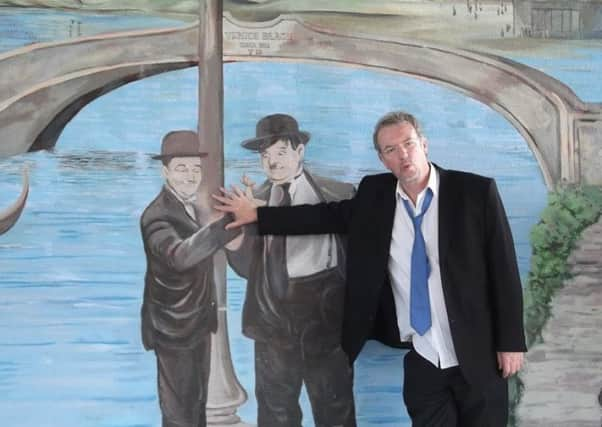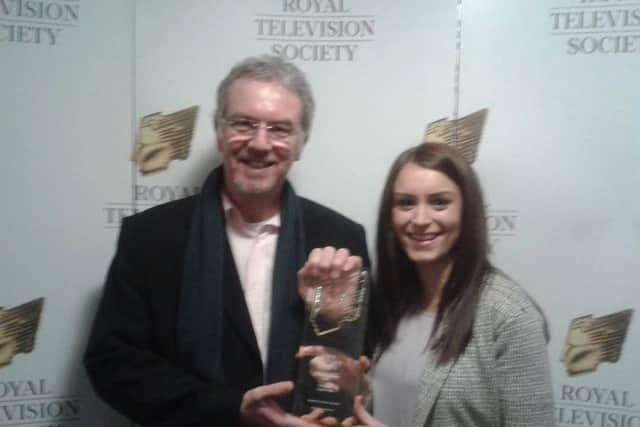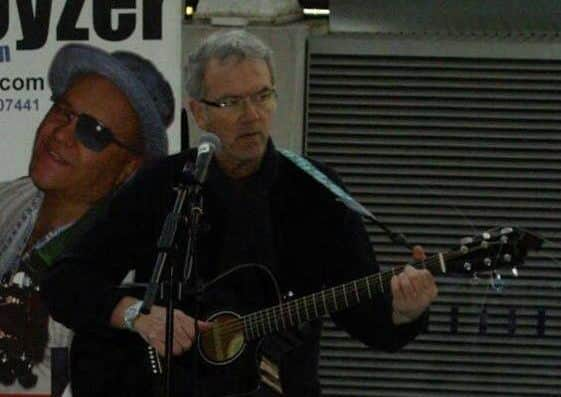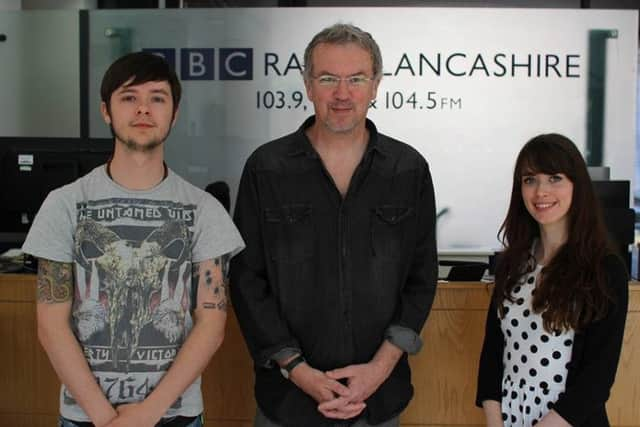UCLan lecturer Bill is '˜happy not to be famous,' as he works with celebrity names


He admits: “I’m happy not to be famous. Fame is something you have to deal with and it is not what people imagine it to be. Some deal with it very well, but for others it can change them.”
But that has not stopped the 60-year-old, who teaches screen writing for film and TV at UCLan, using his journalistic instincts to pursue up-coming celebrities. Proving he had a good nose for talent, he was the first person to interview comedians Eddie Izzard and Paul Merton and had caught up with Rory Bremner in his early days.
Advertisement
Hide AdAdvertisement
Hide AdBill says: “I have always been into writing. I soon found out that if you wrote things people would pay you. If I went out to a gig, I would write a review. If I saw a famous person I would interview them.


“I started to earn money from that. I was the first journalist to interview Eddie Izzard and Paul Merton as I saw them in clubs in London. I was also one of the early journalists to interview Rory Bremner.
“I started off writing for Melody Maker, which no longer exists, and Stage, which is a newspaper for actors. I worked for other papers, such as Manchester Evening News and national Sunday papers as a freelance journalist.
“One of my most interesting articles for the MEN was with Alistair Taylor, music producer Brian Epstein’s right hand man. He gave me the inside story on The Beatles as he was there all the way through their journey.”
Advertisement
Hide AdAdvertisement
Hide AdBill’s dedication and enthusiasm enabled him to land a job at Granada TV in the 1990s.


He says: “In the 1990s I got a break at Granada TV as a researcher and in production. I met some amazing people - some famous people and people with stories to tell. I had incredible access to people. I got to spend the day with George Best as he was on one of our shows. He had a reputation for being naughty and disappearing. So I had to keep track of him and make sure I knew where he was.
“He had been a hero of mine as a child as he was such a good footballer. I was hanging out with him – and I got paid for it. He was such a lovely guy and for a day I was his buddy.”
Working at Granada enabled Bill to delve into important issues and even raise awareness about social injustices.
Advertisement
Hide AdAdvertisement
Hide AdHe worked on a documentary featuring Alex Alexandrowicz, who was arrested for aggravated burglary and was given two life sentences and spent 22 years in prison.


Alex had ran away from his violent family to live in Preston, breaking into houses to steal food and sleeping rough in coal cellars. One break-in led to a year in a young person’s prison for aggravated burglary, after a woman opened a front door as he tried to use a pen-knife.
This time, however, he was handed two discretionary life sentences for aggravated burglary and grievous bodily harm, and given Category A security classification. He was unfairly treated because the authorities believed he was a Soviet spy.
The father-of-two adds: “The great thing about working there is that if you had a passion or issue, you would put it out there on TV and reach millions of people.
Advertisement
Hide AdAdvertisement
Hide Ad“One of the greatest things I did was make a documentary about a man who was stuck in prison and should not have been. He had lived in Preston and his story featured in the Lancashire Evening Post at the time. I went to the paper’s offices to research the story on microfiche.


“Our documentary pressure in the Home Office in 1993 and a year later he was released. It is great doing these things and knowing I can make a difference to someone’s life.”
Bill also claims he was involved in THAT Michael Howard interview in 1997 where Jeremy Paxman asked him the same question - ‘did you threaten to over rule him?’ 12 times.
He says: “I had been working with investigative journalist and television editor Ray Fitzwalter for a few years.
Advertisement
Hide AdAdvertisement
Hide Ad“There was a famous interview where Jeremy Paxman was talking to Michael Howard about the possible dismissal of the governor of Parkhurst Prison, John Marriott. Howard was asked by Paxman the same question over and over again, but he would not answer it.
“The interview was based on a programme I researched about the prison service.
“I was also the first person to put Harry Hill on a TV show on Granada in 1997. I saw him in a club in London and it went on from there.”


Now a lecturer at UCLan, Bill admitted he never envisaged teaching others.
He adds: “It was never an ambition of mine.
Advertisement
Hide AdAdvertisement
Hide Ad“While at Granada I wanted to spent more time writing, so I applied to lecture part time at Salford University. I never expected to get the job, but I did and I really enjoyed it.
“It was always my ambition to run a small TV channel and I was involved in Channel M with the students. That then became a full time job.
“After Salford, I joined UCLan 10 years ago.”
Bill’s talent doesn’t end there, as he has been in a band and rubbed shoulders with likes of Caroline Aherne, Steve Coogan and Dave Gorman in the early days of their career.
He adds: “When I was studying at Edgehill University I was in a band called The Nice Men. We did some gigs and brought some singles out. It started as a laugh and we managed to take it a bit further.
Advertisement
Hide AdAdvertisement
Hide Ad“One of our songs, Nuclear Summer, will be reissued on a compilation album by Cherry Red Records. The company is bringing out songs which did well in the indie charts. That song came in at number 2 in the indie charts in 1980.
“During some of our gigs we were on the bill with people who later became famous, such as Everything But the Girl, Teardrop Explodes and A Flock of Seagulls.”
Bill, who lives in Southport, has also written several plays, including Mourning TV, which was nominated Best New Play by the Manchester Evening News in 1992.
At the age of 23 he wrote and directed Speech Therapy, which was the winner of Most Original Play, in the Liverpool Centenary Festival.
Advertisement
Hide AdAdvertisement
Hide AdHe is now working on a series of children’s books, as well as a short film, with his daughter Lorna, 19, who works for a film company in London.
He adds: “In November I intend to publish a children’s book – Herbert to the Rescue. I have a series of books for children aged seven to nine written about Albert Snodgrass who is half man, half lizard. He is a bad character. The pictures are drawn by my daughter Lorna.
“I am also working on a short film with Lorna – The Art Collector – where artificial intelligence takes over humans. I hope to get it finished in September and I intend to submit it to the BAFTAs.
“I was recently in Berlin with my UCLan students making some films to put into The Great Northern Creative Festival.”
With such a varied career, Bill is certainly never bored.
Advertisement
Hide AdAdvertisement
Hide AdHe admits: “I love all of it. I would not want to cut any of these things out. I love doing music; I love writing about people.
“I also love teaching. It is a great privilege if you can persuade people that they can do something when they doubt themselves.
“I feel very proud when I see the name of one of my previous students on the credits of a programme.”